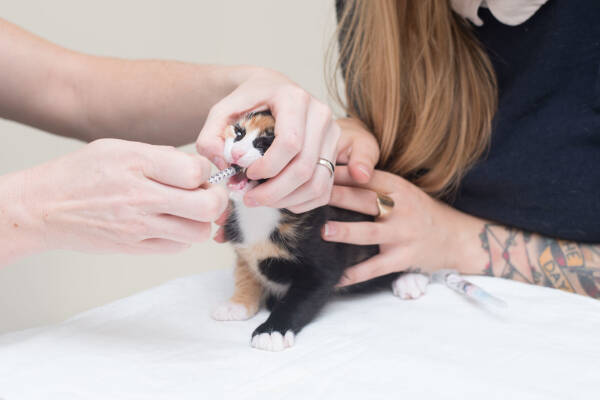Removing internal and external parasites is vital to your kitten's health. Here are some suggestions for deworming kittens:
1. Consult your veterinarian: Before giving your kitten any deworming treatment, it’s best to consult your veterinarian. Your veterinarian can provide you with advice on deworming and develop the most appropriate deworming plan based on factors such as your kitten's age, weight, and health.

2. Eliminate internal parasites: Internal parasites mainly include roundworms, hookworms, and tapeworms. Kittens often acquire internal parasitic infections from their mother cats, so your veterinarian will usually recommend their first deworming when they are 3 to 4 weeks old. Thereafter, deworming may be required every few weeks or months until the kitten reaches adulthood, depending on your veterinarian's recommendations.
3. Get rid of ectoparasites: External parasites include fleas, mites, and lice, which can cause skin problems and other health problems. Kittens can acquire ectoparasites through contact with infected floors or other contaminated objects. To control ectoparasites, your veterinarian may recommend starting preventive deworming products when your kitten is of appropriate age.
4. Long-term plan: Deworming is a long-term plan, not just a single treatment. Follow your veterinarian's recommendations, make sure to keep preventive dewormings on schedule, and check your kitten's health regularly.
It is important to note that the use of repellent products should be safe and appropriate. Follow your veterinarian's recommendations to choose the appropriate deworming product based on your kitten's age, weight, and health. Do not buy or use deworming products on the market by yourself to avoid adverse reactions to kittens or excessive use.
Remember, timely deworming is very important for your kitten's health and coexistence with other pets and family members. When in doubt or confused, seek professional advice from your veterinarian.
animal tags:
We created this article in conjunction with AI technology, then made sure it was fact-checked and edited by a Animals Top editor.